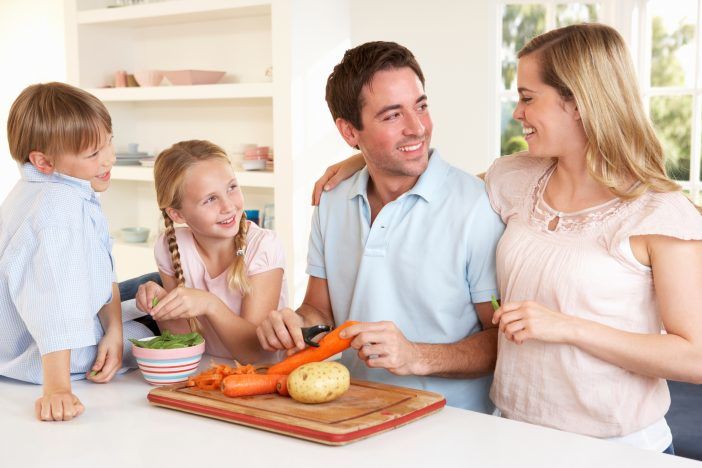
Did you know that 1 in 3 cancers can be prevented?
Research shows that a person’s risk of getting cancer depends on a variety of environmental factors. But there are some things you can do to reduce your risk of cancer.
With the average Australian carrying a 1 in 2 chance of being diagnosed with cancer by the age of 85, it’s important to understand the things you can do to shift the odds in your favour.
In this article I, Dr Rob Paterson, will guide you through simple lifestyle changes that can help prevent cancer.
Stay active
Being physically active every day can reduce factors that cause the growth of some cancer cells. Exercise also combats obesity (a known cancer contributor), and reduces exposure to dietary carcinogens by speeding up food passing through the bowel.
The Cancer Council of Australia recommends at least 60 minutes of moderate (or 30 minutes of vigorous) exercise daily.
Here are a few ways you can begin to incorporate more movement into your day:
- Break up long periods of sitting at work or at home with short walks.
- Plan at least 30 minutes of an enjoyable activity every day.
- Opt for more physical ways of getting around – take the stairs, bike ride short distances, or get off public transport one stop early.
Eat a healthy diet
The World Health Organisation has classified processed meat as a carcinogen – with red meat also under suspicion. Current research shows that there are certain chemicals in processed meats (such as sausages, ham, and salami) and red meat (beef, pork, lamb or veal) that are known to cause cancer.
Limiting the consumption of these meats to a couple of times a week is recommended. The Cancer Council recommends eating no more than 700g (raw weight) of red meat per week, and cutting out processed meats altogether.
In addition, a variety of fresh fruit and vegetables are proven to offer protection against cancer directly through the anti-carcinogenic agents they contain.
Eating 2 serves of fruit and 5 serves of vegetables helps reduce your risk of bowel, oesophageal, lung, and throat cancer. So fill your plate with veggies – the more colours, the better!
Limit your alcohol intake
Alcohol is responsible for over 3,200 cases of cancer in Australia each year.
Alcohol damages your body in multiple ways, and can influence your risk of breast, bowel, liver, mouth, throat, and oesophageal cancer. Any reduction in the amount you consume will reduce your risk of developing cancer.
If you don’t want to cut alcohol out altogether, try the following:
- Limit your intake to no more than 2 standard drinks per day.
- Replace alcohol with water whenever possible.
- Commit to having some alcohol-free days every week.
Reduce your UV exposure
Skin cancer is one of the most common types of cancer. It is mostly caused by ultraviolet (UV) radiation from the sun, which means it’s largely preventable.
Try these tips to limit your exposure to damaging UV rays:
- Cover exposed skin with loose fitting clothing.
- Avoid direct sun when UV radiation is strongest – from 10am to 4pm.
- Apply sunscreen generously and regularly when outdoors.
- Wear a broad brimmed hat to protect your face and neck.
- Seek shady areas such as under trees, a sailcloth, or verandas.
Maintain a healthy weight
Over 3 million adults in NSW alone are currently overweight or obese. Being overweight causes a variety of health problems, including significantly increasing your risk of 11 types of cancer.
Cancer Council research shows that a waistline of more than 94cm for men and 80 cm for women increases some types of cancer. Controlling your weight not only reduces that risk, but can also increase your life expectancy and overall wellbeing.
Some tips to help you manage your weight:
- Build 60 minutes of exercise into your daily routine.
- Limit fatty meats, processed foods, and sugary products.
- Eat more vegetables, fruits, lean protein and whole grains.
- Drink 2L of water each day.
Quit smoking
Smoking any kind of tobacco puts you directly at risk of cancer. Smoking has been proven to cause various types of cancer, even if it’s second-hand smoke.
Quitting smoking is one of the most important actions you can take to protect your health. Every hour of every day you don’t smoke improves your cancer risk, as well as your overall health. After 10 years of not smoking, your risk of lung cancer has halved.
There are a number of services available to help you kick the habit. Call Quitline on 13 78 48, or visit https://www.icanquit.com.au/ to get started.
Where to get further advice
If you suspect you have cancer, I recommend you speak to your GP for a referral to see one of our qualified and caring Oncologists at Hunter Valley Oncology.
Our holistic Oncology service fulfils the needs of patients in Newcastle NSW and surrounds. To make an appointment, please call (02) 4941 8424 or (02) 4942 2600 or use our online contact form.
